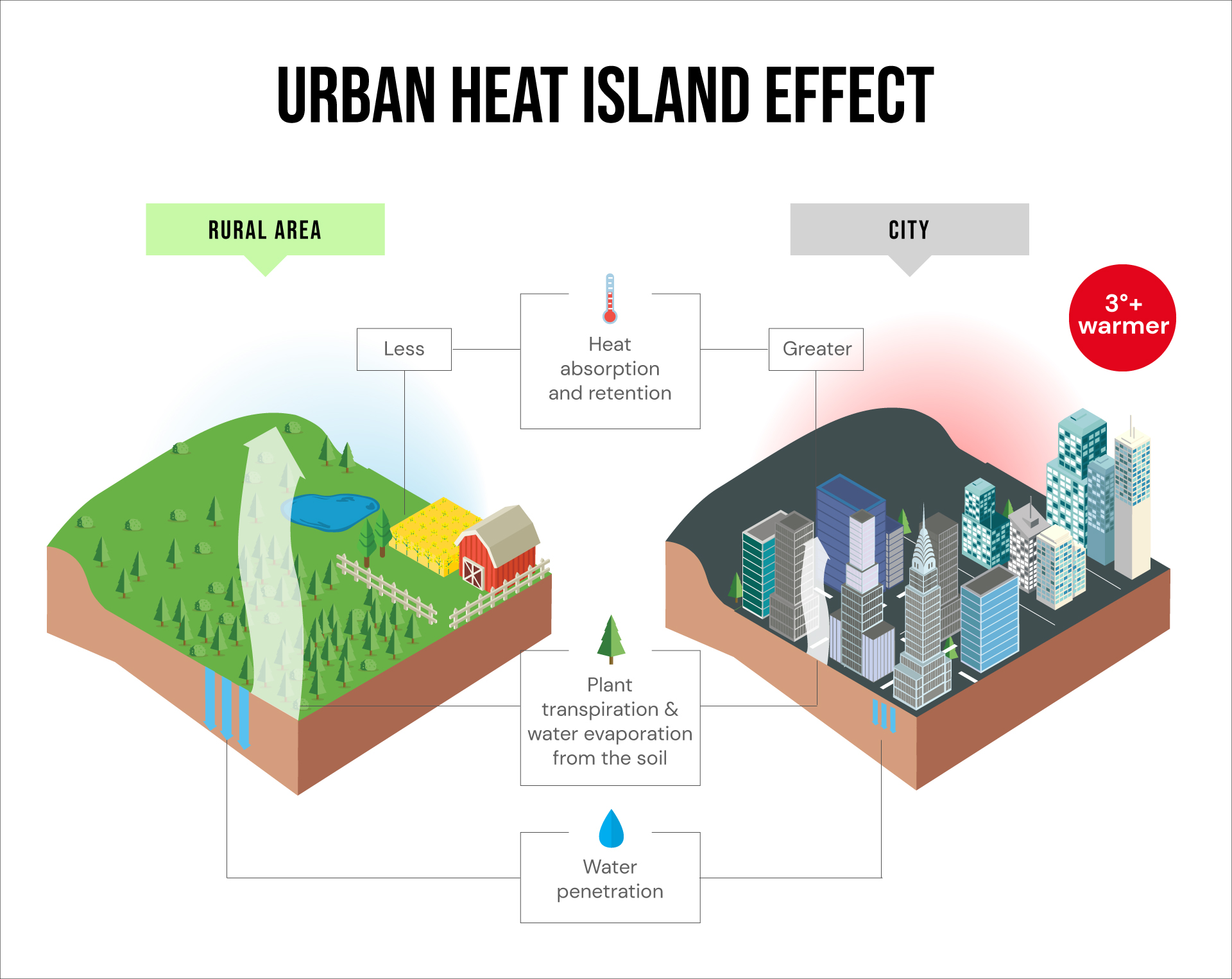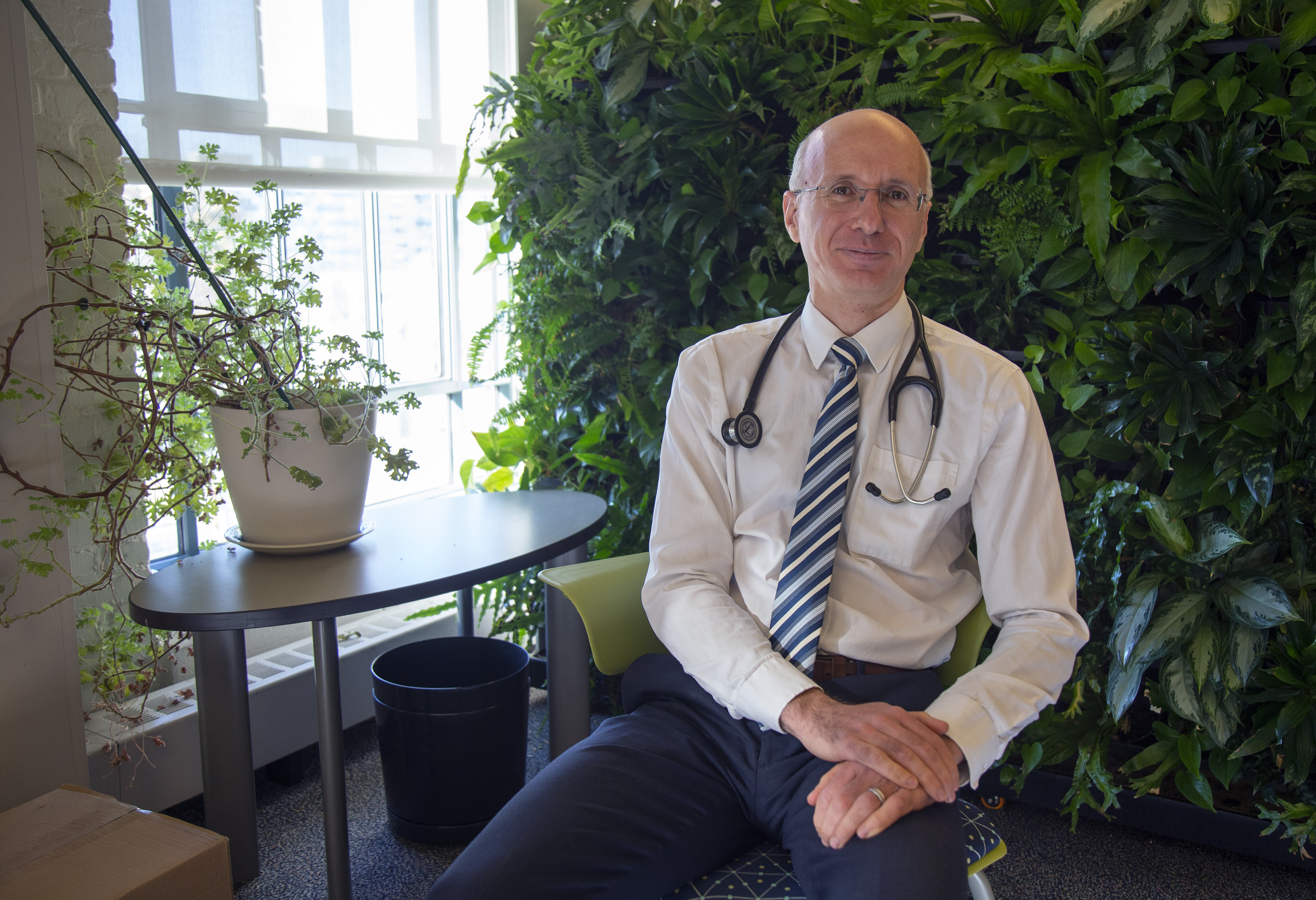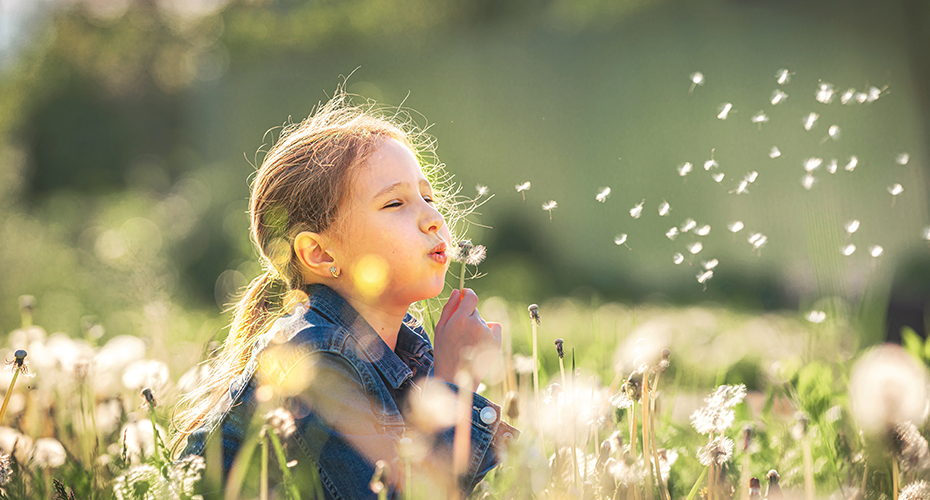May 25, 2023
How to breathe easier during allergy season
In a Coverage series, a physician explores the ways health and health care are affected by climate change, and highlights climate actions families can take to ensure that we provide our children and our loved ones with a healthier, more just, and sustainable world.
As we near the start of the weed pollen season which lasts through the summer — and as many of us find ourselves spending more time outdoors, playing, hiking and physical distancing in parks or woodlands — tens of millions of allergic Americans are bracing for discomfort, and even for serious illness. We have medicines that can help relieve the sneezing, snuffling, and aching that allergies can cause, as well as reduce the chances of an emergency room visit for a pollen-induced asthma attack. But there may be a more significant way to deal with the growing suffering from seasonal allergies: climate action.
Fifty years ago, New England’s pollen season started, on average, a week later than it does today, and ended a week earlier. What’s changed? The climate.
A warming planet doesn’t just make for hotter summers; it makes spring start earlier and winter start later, and that means longer pollen seasons.
The climate has changed primarily because we’ve flooded the atmosphere with carbon dioxide from fossil fuels like oil, gas, and coal. This higher concentration of carbon dioxide causes plants like ragweed to make more pollen. A ragweed plant grown today may make twice as much pollen per plant as it would have in the 19th century when carbon dioxide levels were much lower.
Burning fossil fuels — especially from cars and trucks — also releases air pollutants that can worsen children's allergies and even trigger asthma.
Your allergies may be especially active if you live in a city, where carbon dioxide levels can be 30% higher and temperatures 3+ degrees warmer than in surrounding areas. Cities are hotter than suburbs or nearby rural areas because of the “urban heat island effect.” Cities have more dark roofs, paved roads, and lack cooler and greener surfaces in comparison to surrounding areas, which all leads to more heat absorption. The warmer temperatures and higher carbon dioxide levels mean that ragweed plants thrive in cities—they flower earlier, make more pollen and live longer than their rural counterparts.

A first line of medication defense against seasonal allergies are antihistamines, such as loratadine (Claritin), fexofenadine (Allegra), cetirizine (Zyrtec) and diphenhydramine (Benadryl). These medications can work wonders for people with allergies. At the same time, they are often paired with other medications, such as decongestants, that can affect how our bodies sweat and regulate temperature. (Diphenhydramine may do this on its own as well).
This matters because climate change is causing more severe heatwaves and taking certain medications, including those taken for allergies, may increase your risk for fainting, over-heating, or getting dehydrated, among other problems. If you take allergy medications, and especially if you take other medications regularly, make sure to pay attention to how hot it is outside as summer approaches, which for many of us is now.
Beyond taking antihistamines, we can all take important actions to make pollen season more bearable:
- Keep an eye on the pollen forecast. If it looks bad, try to stay indoors in a room that has good air filtration to take out pollen.
- If you have forced heating and cooling, replace the air filter on your furnace at least twice a year, and more if you have pets or smoke.
- If you live in a city, maximize your green space, whether inside or outside, with plants that make little or no allergenic pollen (like these). Think about a green roof. More plants can help cool things down and suck up carbon dioxide, too.
- Driving less and walking, bicycling and taking public transit more will mean less fossil fuel is burned and less carbon dioxide and other air pollutants are produced.
Allergies are never fun, but climate actions can clean our air and shorten pollen seasons, and that means we can all breathe a little easier.
Did you find this article informative?
All Coverage content can be reprinted for free.
Read more here.

Dr. Aaron Bernstein is co-director of the Center for Climate, Health, and the Global Environment at the Harvard T.H. Chan School of Public Health (Harvard Chan C-CHANGE) and a pediatrician at Boston Children’s Hospital.

